Psycho-Pass on Ice
Is there a universal moral compass?
We each view the world through our own lenses, shaped by our personal experiences and the stories we hear. Is there a universal moral compass that we can use to judge others and ourselves, or are we doomed to face conflict when we meet people too different from us? Diane and Sabina explore the difficulty of understanding and accepting one another.
Behind-the-scenes of ~Moral Impasse~
Written by Diane Zhou and Sabina Chen
Published in August 2022
Measuring Morality
In the world of Psycho-Pass, the Sybil System maintains order with its ability to assess a person’s mental state. By taking into custody those with a high “Crime Coefficient,” the system aims to prevent crimes before they happen. This peaceful society seems to conform to morality as decided by the Sybil System, but is measuring morality really such a simple task?
We follow two characters in Psycho-Pass who are arguably treated unfairly by the Sybil System. One is Shinya Kogami, a detective whom the system judged to be a “latent criminal” after experiencing injustice from a brutal case going unsolved. The second is Shogo Makishima, a “criminally asymptomatic” individual who is able to commit crimes without the system judging him to be dangerous. Although they both harbor resentment towards the Sybil System, they disagree about the best way to right its wrongs.
In “Moral Impasse,” we explore how personal experience plays an impactful role on our sense of morality. Even when we understand each other, it can be difficult to agree on what is “right” and “wrong.”
“There’s no right answer. There’s only compromise.” ~ Tomomi Masaoka
Creative Process
Choreography
Set to the main theme of Psycho-Pass, our choreography focuses on the tense dynamic between Kogami (represented by Diane) and Makishima (represented by Sabina). We break down their interactions into four main stages: curiosity, contemplation, confrontation, and impasse. The slideshow below details our thought process behind each of the stages
Play each video to view the section of the program corresponding to the description on the slide.
A highlight of choreographing this program was learning some martial arts and bringing it onto the ice to portray conflict in a very obvious way: a physical fight scene. Thanks to our teacher Michelle Ly, who is also the artist of the cover art for this program!
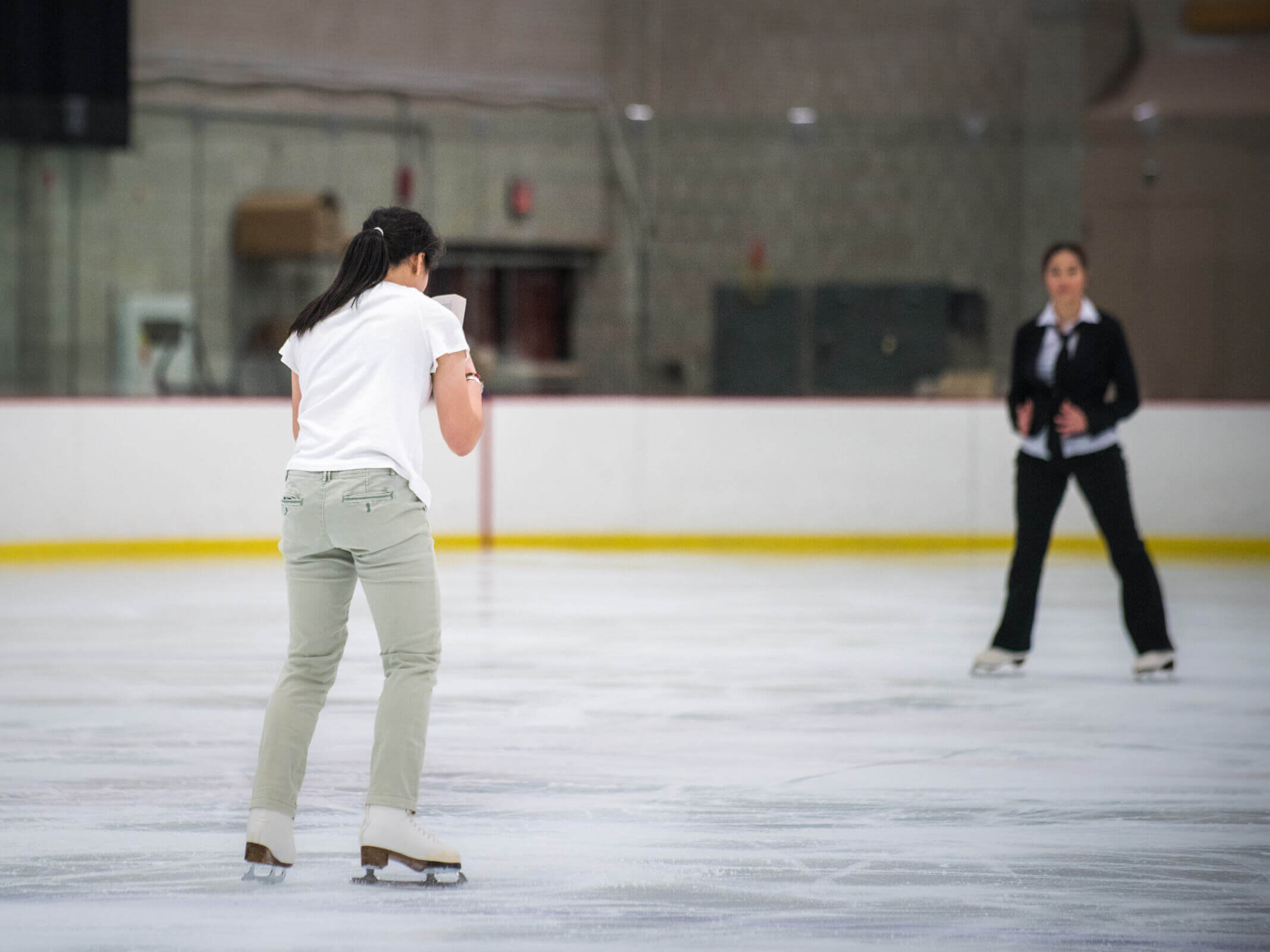
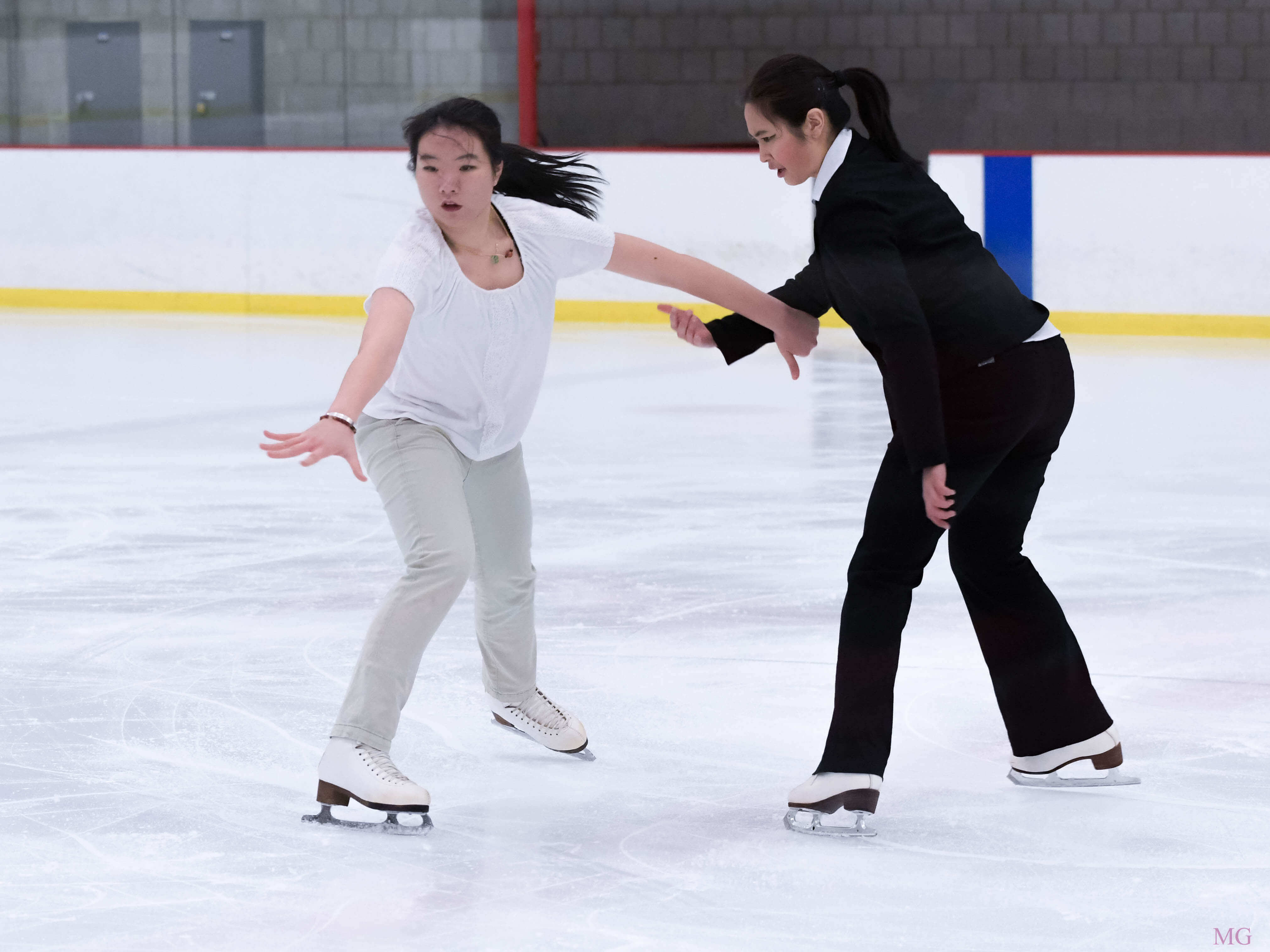
Photographs from our performance by Rachel Wu (left) and Maude Gull (right)
Costume & Prop
Our costumes were based on the characters we represented. Diane wore a suit similar to Kogami’s outfit, while Sabina wore casual attire reminiscent of Makishima.
Sabina also held a copy of 1984 by George Orwell, which is one of Makishima’s favorite books. In our program it symbolizes that books can be a powerful way to share experiences with each other and throughout different time periods, but still cannot replace lived experiences.
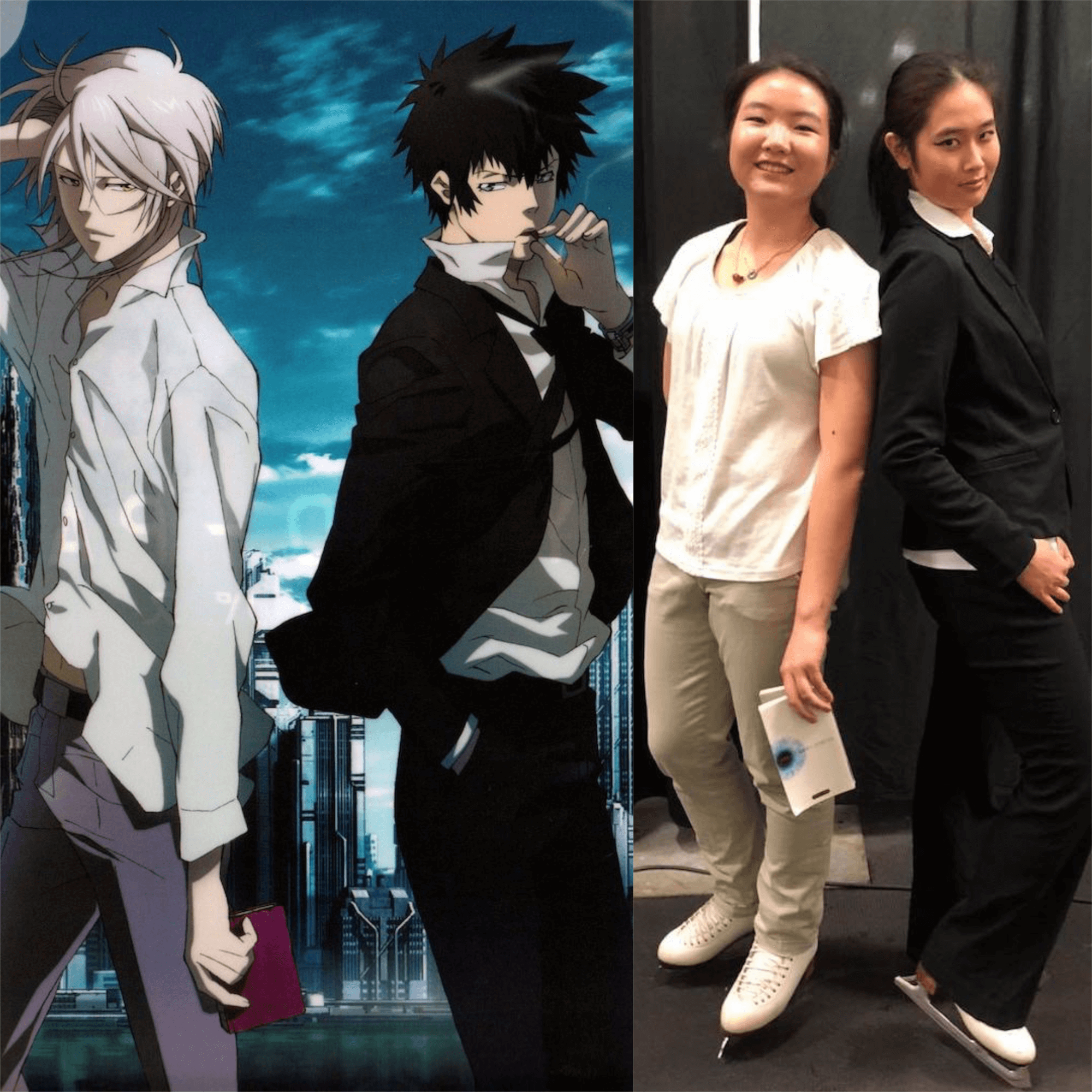
Reflection
While making “Moral Impasse,” we struggled with how to conclude the program and settled on simply skating away from each other, as opposed to stopping and posing. At the end of our performance, the audience’s applause was hesitant; perhaps it was unclear that that was an ending at all. In a “meta” way, this was a misunderstanding between us and the audience, which discouraged us from continuing Anime on Ice for a while.
However, in hindsight, this program still fits well into our Anime on Ice series. Our earlier duet to “Unravel” dealt with internal conflict and finding balance within ourselves. On the other hand, “Moral Impasse” addresses interpersonal conflict and finding balance with others — the people we interact with, the communities we associate with, the society we live in — while staying true to ourselves.
“Society doesn’t always do what’s right. That’s exactly why we ourselves must live virtuous lives.” ~ Akane Tsunemori
In Psycho-Pass, Akane Tsunemori feels deeply disappointed in the Sybil System after observing what transpires between Kogami and Makishima. Yet, unlike them, she resolves to accept the system for the time being while upholding her own sense of justice.
In our own lives, we also try to compromise with each other when we’re at odds, not always with satisfactory resolutions. Like the ending of our program, sometimes it no longer helps to continue dwelling on a situation and we just have to walk away from it.
Cover Art
For the cover art of this program, we wanted to show the conflict and tension between two characters in a way that would be authentic to both the Psycho-Pass anime and our duet. As a fan of Psycho-Pass, the choreographer of the fight scene in our duet, and a digital artist, Michelle Ly was ideal for the job!
The concept for the art went through a few iterations. Initially we considered fighting poses, but no particular poses felt representative of the mood we wanted to convey. We then played around with Sabina (as Makishima) sitting with a book while Diane (as Kogami) stood with a Dominator.
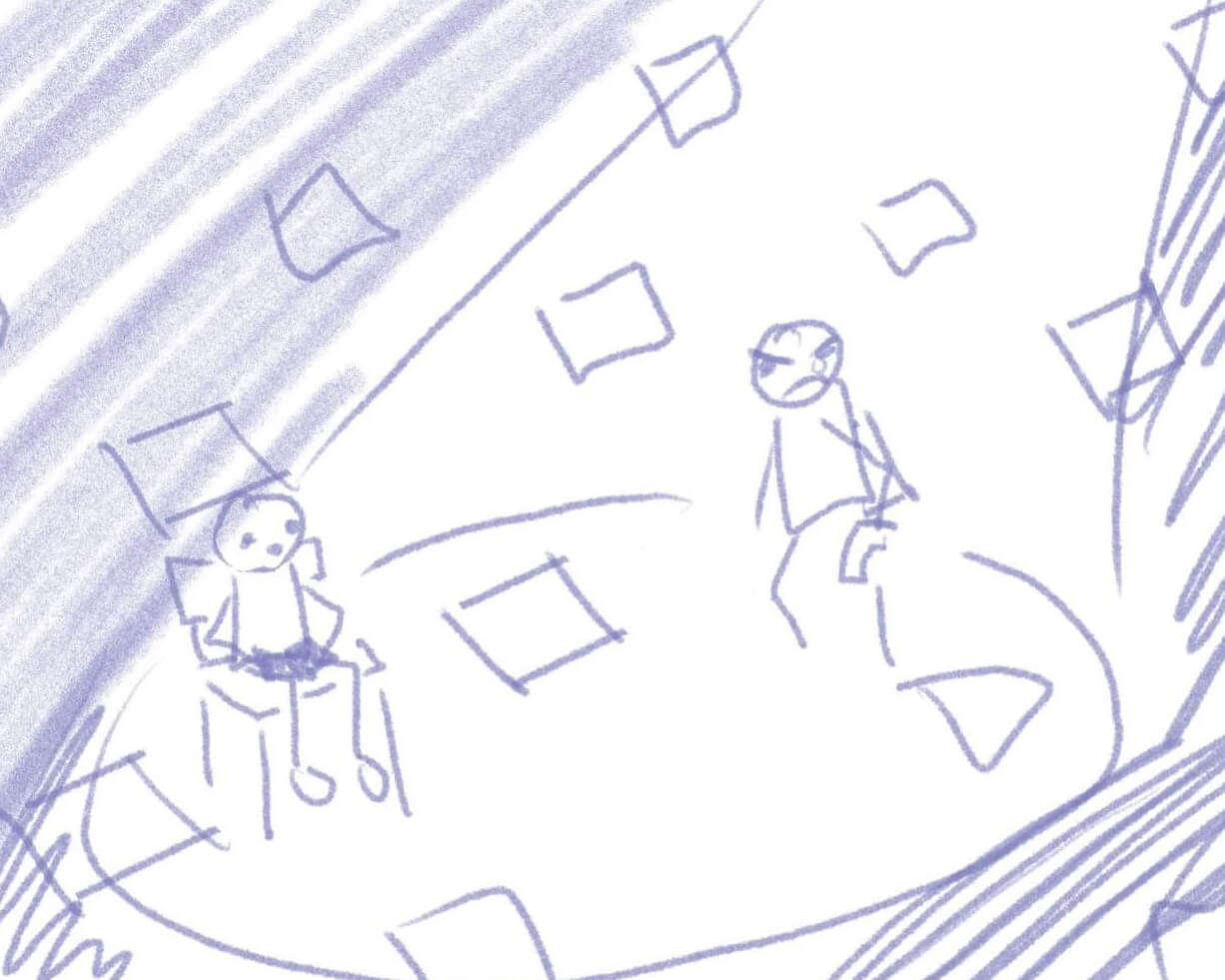
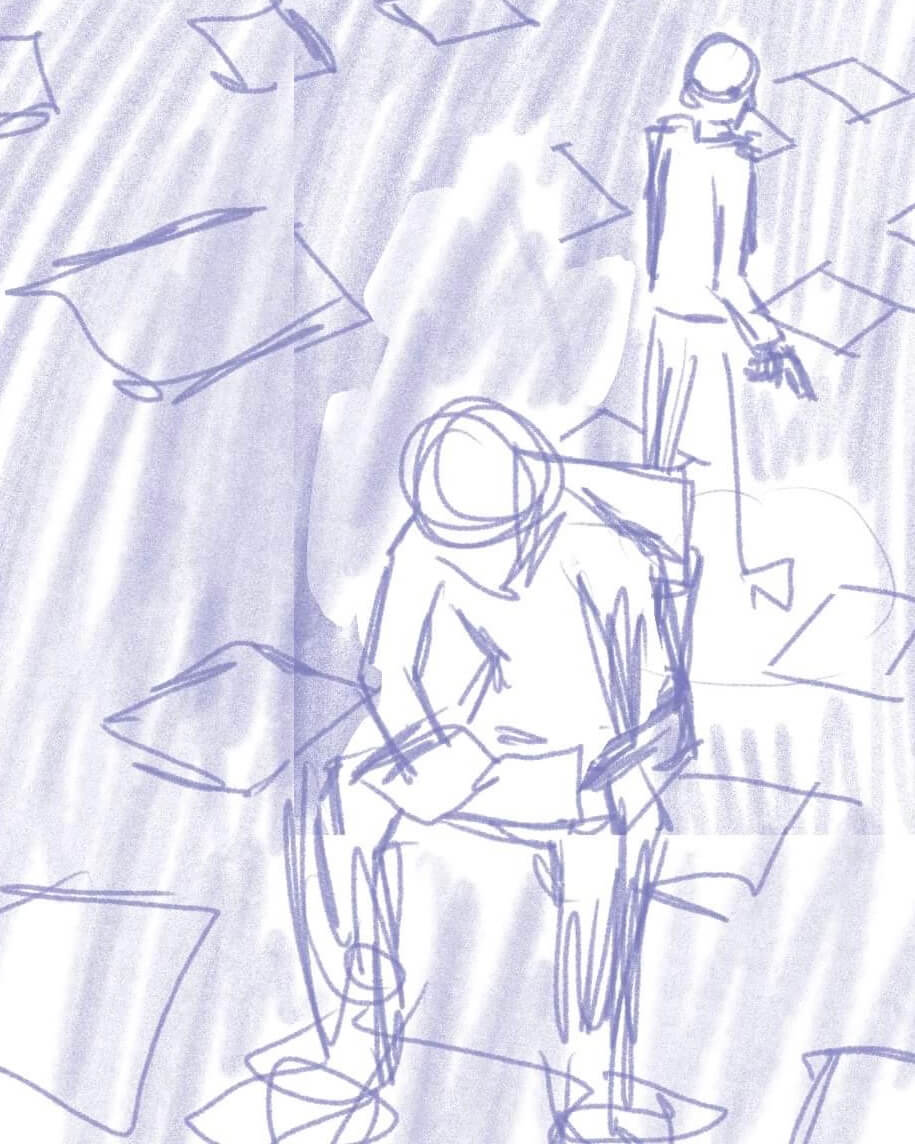
While these concepts captured the characters’ personalities well, we felt that their interaction wasn’t quite right. In the first image, the confrontation looks one-sided with Diane/Kogami angry at a nonchalant Sabina/Makishima. In the second image with the characters’ backs toward each other, the interaction appears too passive.
Eventually, we decided to go with a snapshot of the two characters gliding past each other. While they do not see eye to eye, they still keep each other in their peripheral visions, evoking a tense atmosphere and the potential for conflict.
For the poses, perspective, and composition of the cover art, we took inspiration from the following images from the anime.
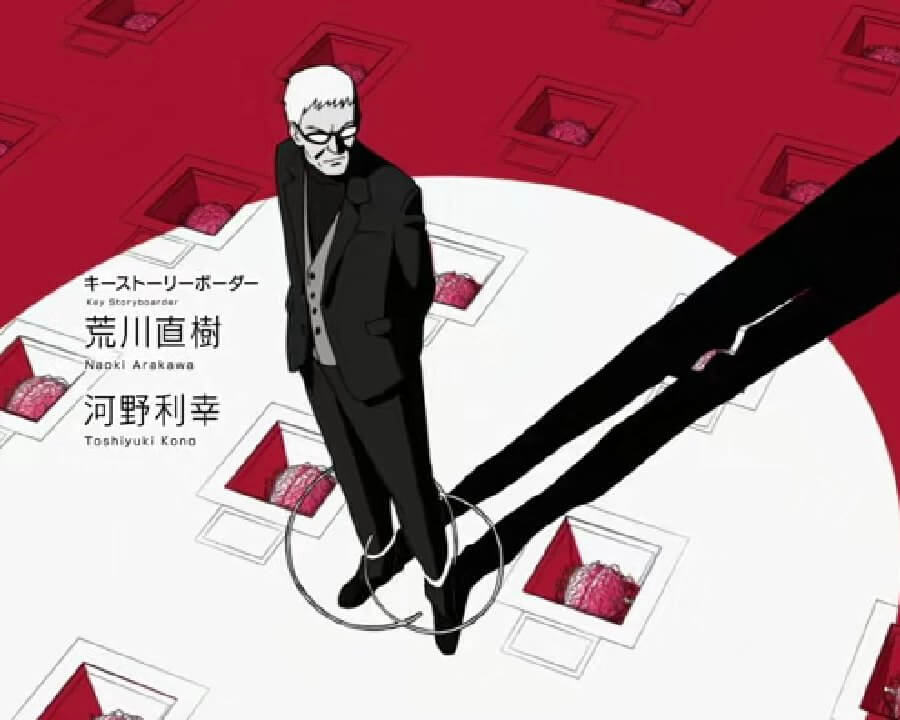
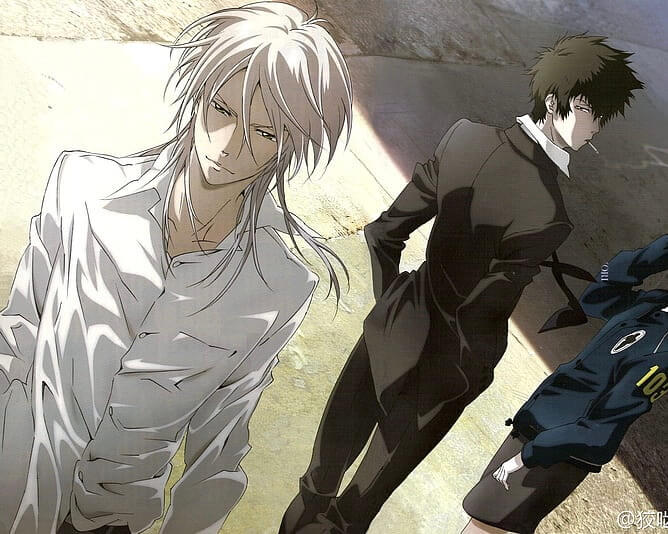
And here is how the art developed.
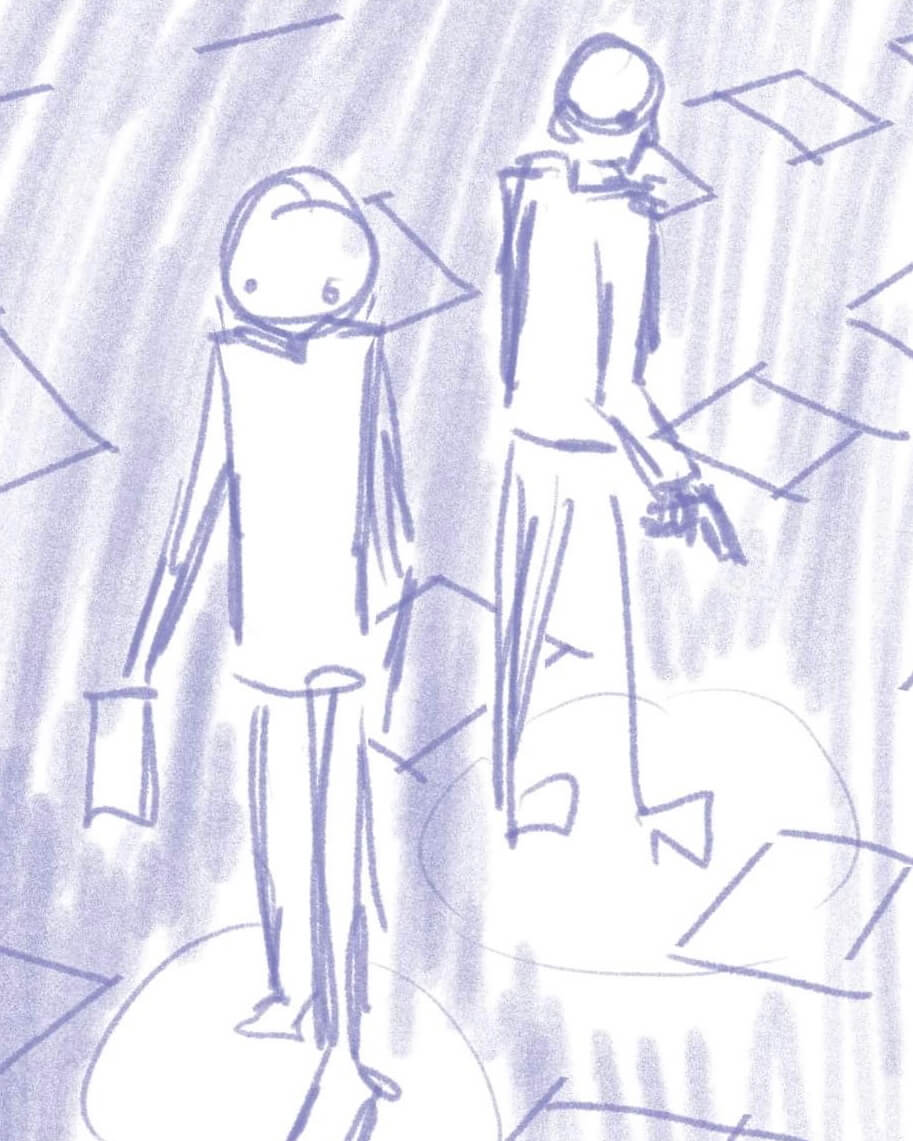
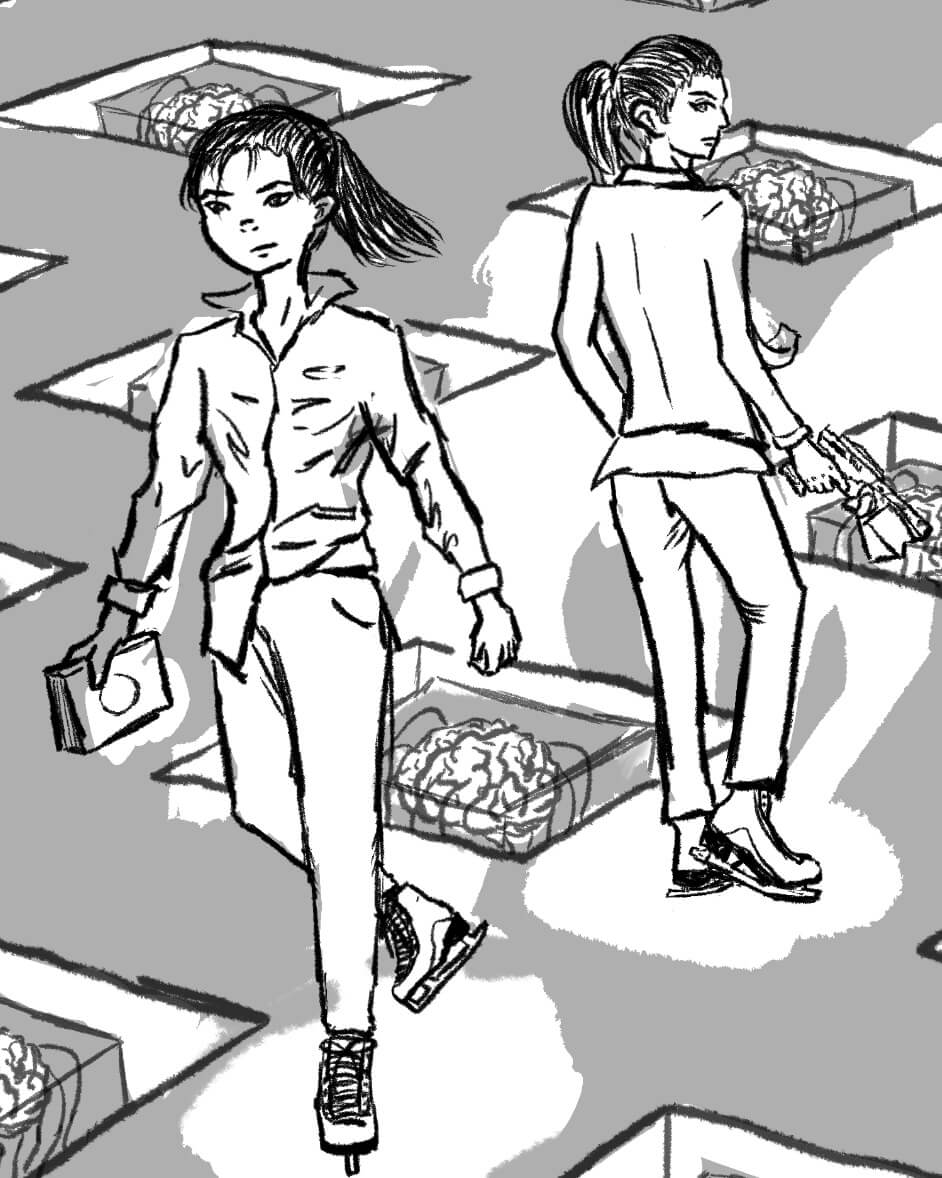
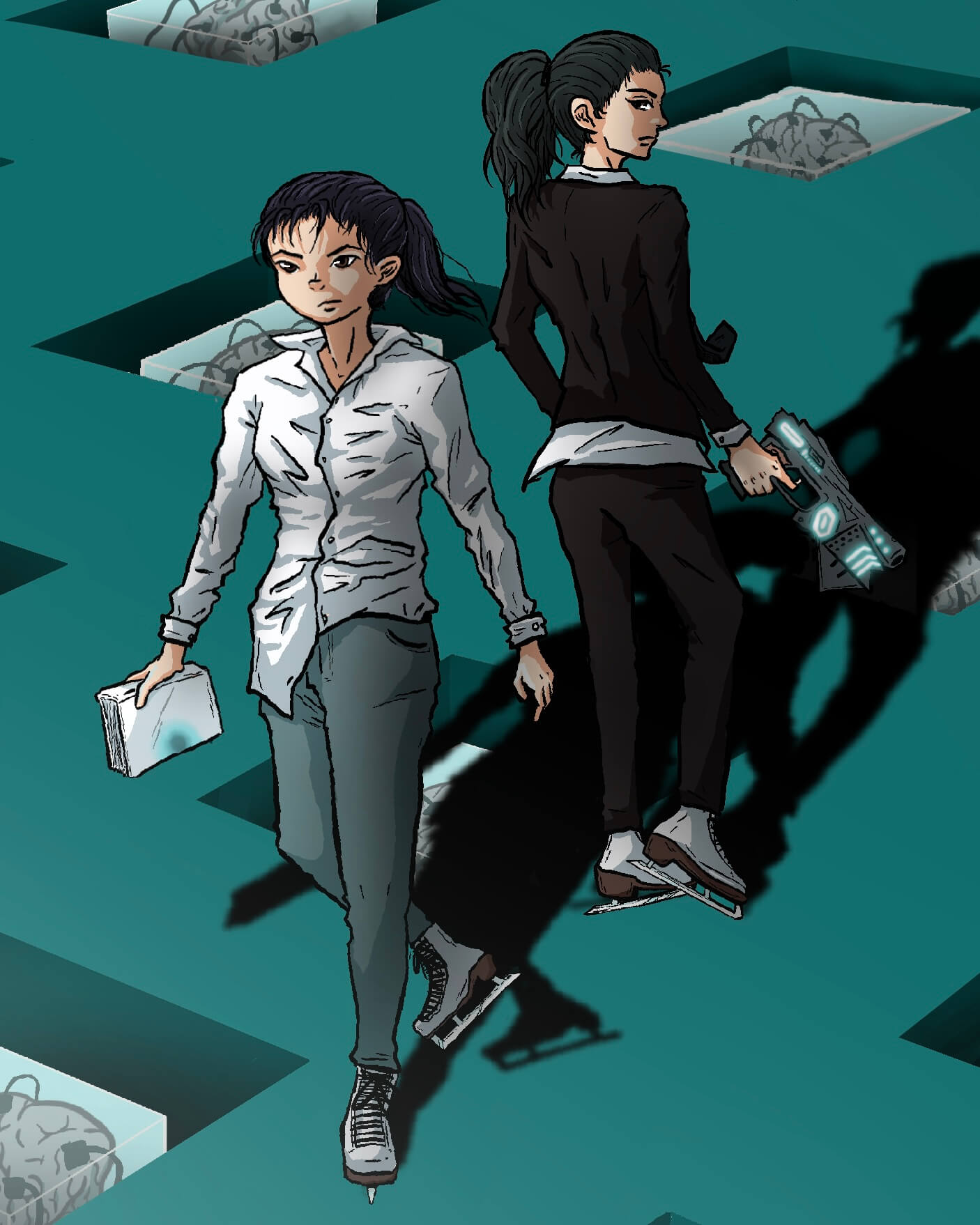
Scroll down to see the final product!
Copyright 2023 Anime on Ice • Website designed and maintained by Diane Zhou and Sabina Chen


